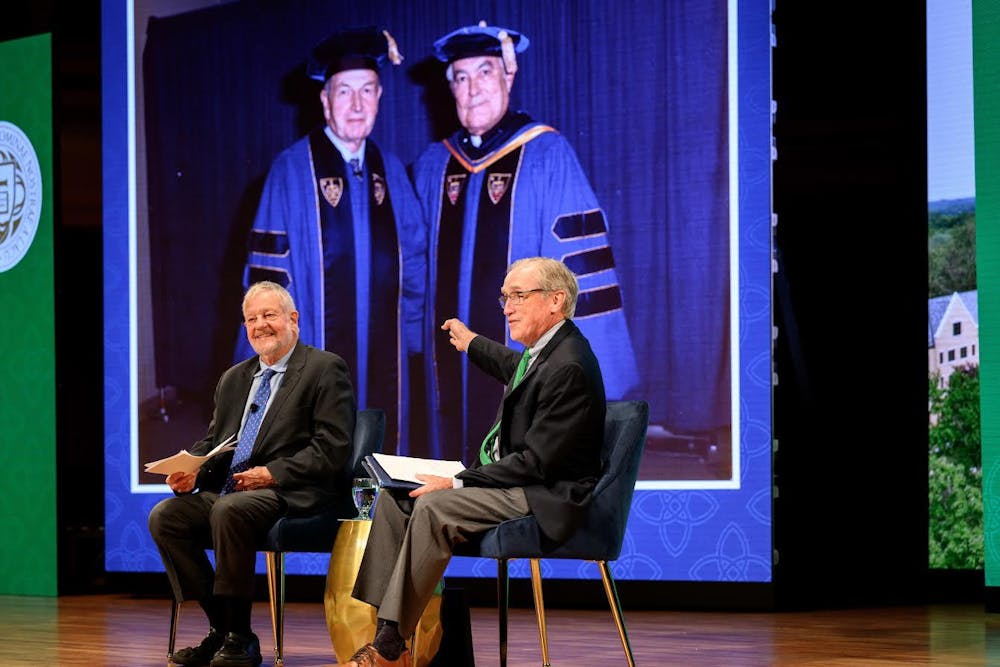David Rockefeller Jr. shared insights on philanthropy, education and global engagement, reflecting on the Rockefeller family's long-standing commitment to positive change and offering guidance for addressing contemporary challenges during the 2024-25 Notre Dame Forum. The forum focuses on campus-wide discussions and this year coincides with the inauguration of University President Fr. Robert Dowd.
Rockefeller, who has been deeply involved in global philanthropy for decades, underscored the importance of a global perspective in today’s interconnected world.
“The world is more interconnected than ever, and understanding and engaging with diverse cultures is crucial,” Rockefeller said.
He highlighted the Rockefeller family’s historical contributions, including establishing the Peking Union Medical College in Beijing, as a commitment to global engagement. This approach, he suggested, serves as a model for current and future philanthropic efforts.
The discussion also turned to the current state of higher education, a topic Rockefeller is intimately familiar with. He acknowledged the significant challenges facing universities today such as leadership transitions, rising costs and the need for increased diversity. Rockefeller stressed the necessity for universities to adapt and innovate while maintaining their core mission of academic excellence.
“The landscape of higher education is evolving rapidly,” Rockefeller said. “Universities need to be nimble and responsive to these changes while fostering an environment of support and growth.”
Rockefeller emphasized that success in this field should not be measured solely by financial contributions.
“Success in philanthropy isn’t just about dollars and cents,” Rockefeller said. “It’s also about the human impact and the progress achieved through your contributions.”
He encouraged setting clear goals and evaluating impact through a broad range of measures, including cultural and social effects.
“There are many ways to gauge success, and a broad definition of it is essential,” Rockefeller said.
When advising students and individuals on making a difference, he emphasized the importance of focusing on personal strengths and passions.
“Identify what you care about and where you can make a difference,” Rockefeller said. “Focus on those areas and don’t try to address every issue at once.”
His advice reflects belief in the power of targeted efforts and personal commitment to effect meaningful change.
Rockefeller also addressed the role of public service and the challenges associated with it. He noted that the current political climate can be discouraging, but encouraged young people to consider careers in public service despite these challenges.
“We need to persuade our young people that there are opportunities to serve where they won’t be subjected to undue negativity,” Rockefeller said.
In his discussion on environmental conservation, Rockefeller shared his observations about the evolving field of sustainable farming and ocean conservation. He expressed optimism about recent advancements and the importance of ongoing experimentation and collaboration with institutions like Notre Dame and Cornell University.
“The focus on sustainable practices is crucial for future food security,” Rockefeller said. “We need to continue experimenting and sharing knowledge to address global environmental challenges.”
He explored the relationship between philanthropy and non-governmental organizations (NGOs), noting that while philanthropy alone cannot solve global issues, it plays a vital role in supporting and partnering with NGOs.
“Philanthropy has to be incredibly targeted,” Rockefeller said. “The needs are so great that we must ensure our efforts are focused and impactful.”










